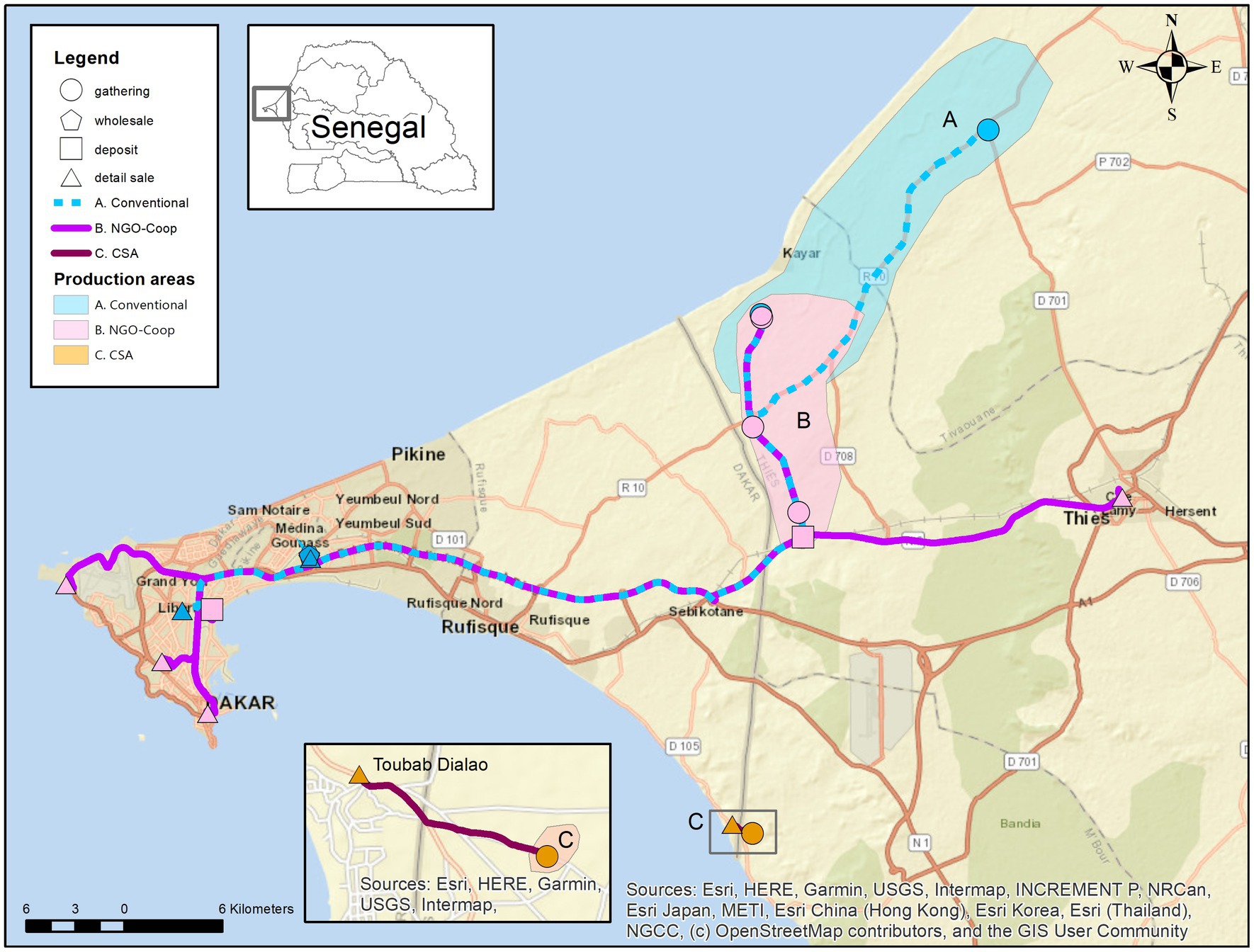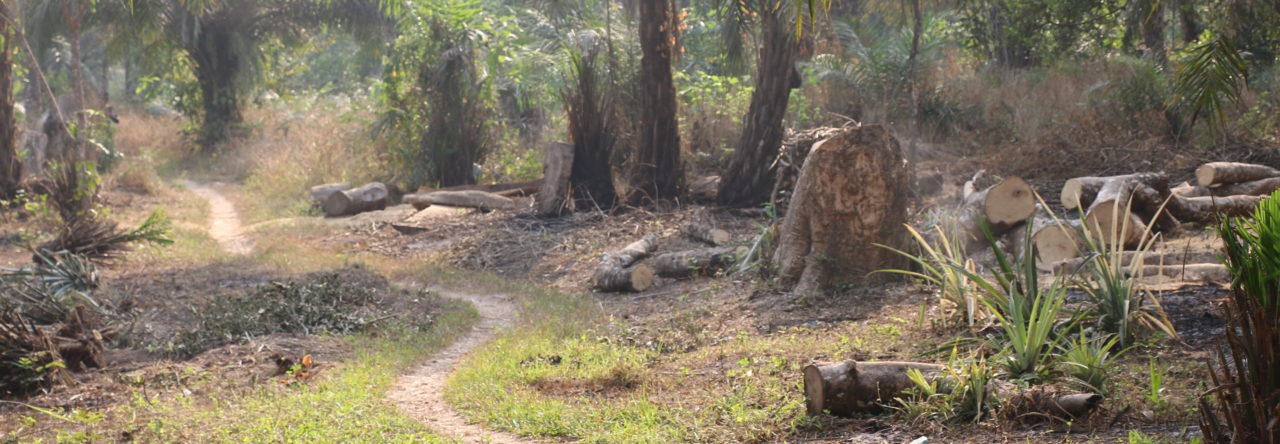
Labor conditions and rights are a key justice issue in agri-food systems, particularly in global, capitalized and industrialized food supply chains. While alternative food networks have emerged to produce and distribute food outside these logics, their ability to provide more equitable work conditions remains widely debated. We examine equity issues in the division of labor in food exchange networks in the horticultural sector of Senegal from the perspective of contributive justice. Contributive justice considers more broadly how different qualities of work are distributed and how work is perceived by the workers themselves. We performed 71 interviews of workers participating in three food exchange networks: (1) the conventional horticultural supply chain from the Niayes production area to Dakar, (2) an NGO-supported organic food network also supplying goods from Niayes to Dakar and (3) a community-supported agriculture scheme in a peri-urban coastal area. We investigated how functions and tasks are distributed along gender, ethnicity, place of origin and education characteristics of workers and how they qualify their tasks in terms of satisfaction and tediousness. We found a sharp labor division along gender, education and ethnic characteristics in the conventional network and a less sharp one in the two alternative networks. However, worker participants in alternative networks tend to belong to local elites and rarely include more disadvantaged people; they also tend to be less specialized and perform several functions, but do not necessarily express better work satisfaction. Workers who perform highly tedious tasks in the conventional network show rather surprising high work satisfaction. Based on these findings, we discuss the interplays between external and situated perceptions of work and the organization of food supply chains. This allows to critically examine the transformative potential of alternative food networks in the context of a lower-middle income country such as Senegal.
https://www.frontiersin.org/articles/10.3389/fsufs.2023.1127593/full
![]()
